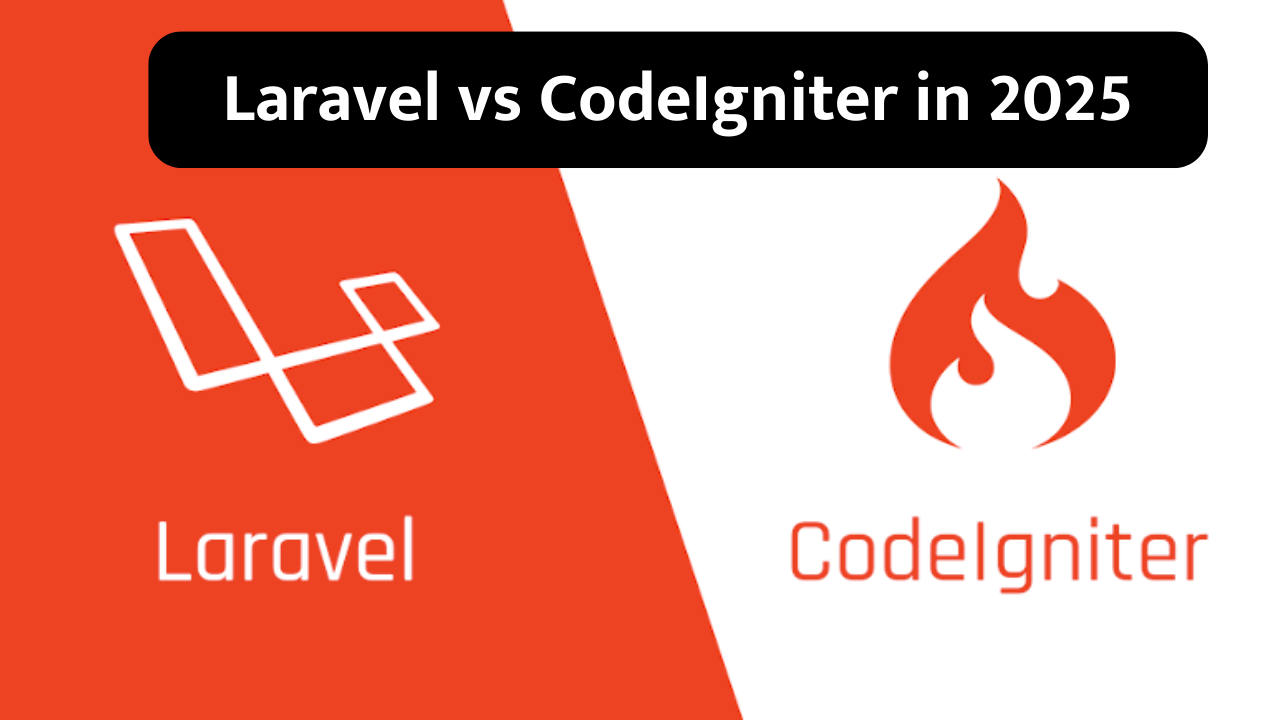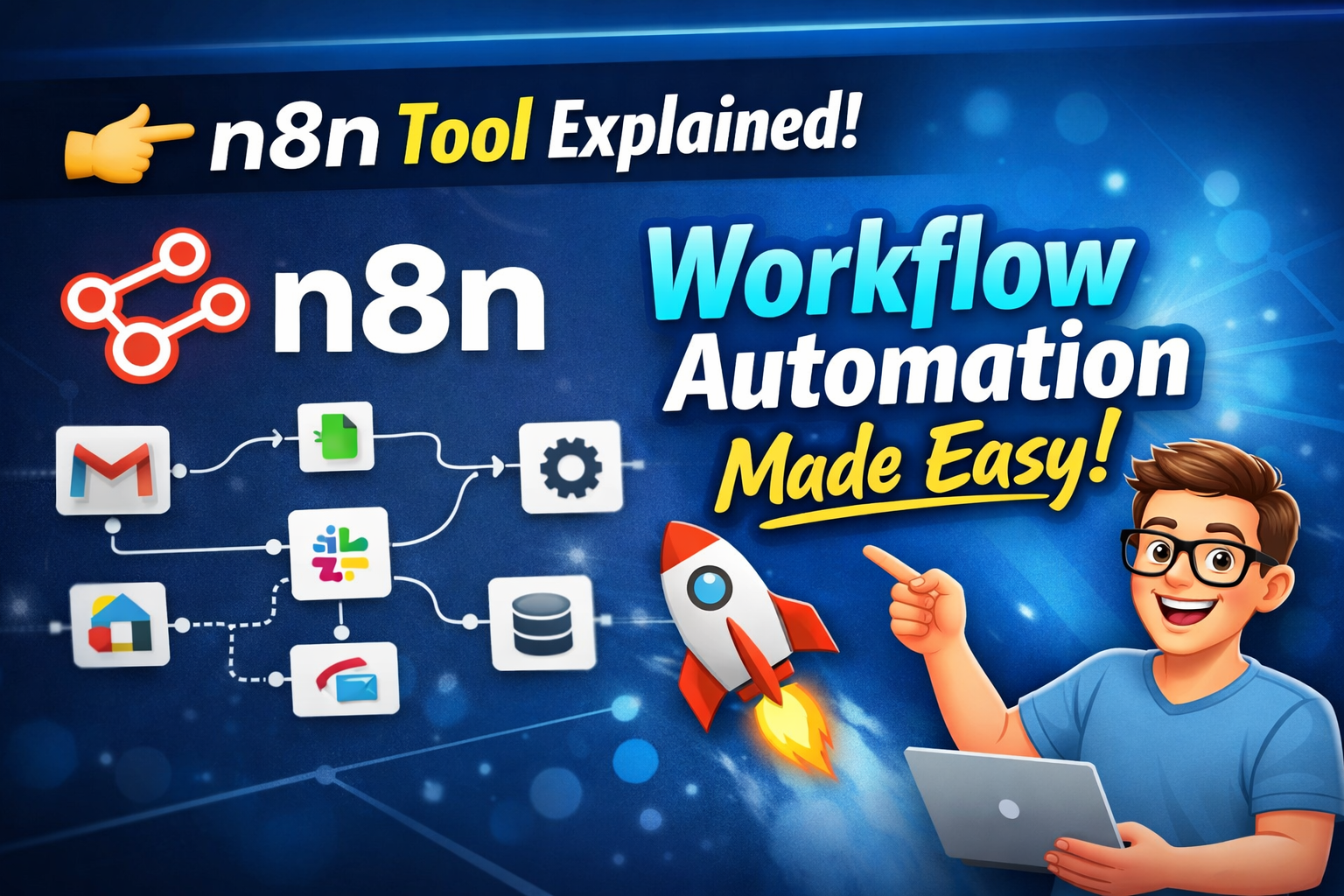Laravel vs CodeIgniter in 2025: Detailed Comparison for Developers
Compare Laravel and CodeIgniter in 2025. Learn their key differences, pros, cons, and use cases to choose the best PHP framework for your next web development project.
When it comes to PHP frameworks, Laravel and CodeIgniter are two of the most popular choices among developers. Both frameworks offer distinct advantages, making it essential to understand their differences to choose the one that best suits your project. In this article, we provide a detailed comparison of Laravel vs CodeIgniter based on key factors like performance, scalability, ease of use, and more.
What is Laravel?
Laravel is a powerful PHP framework known for its elegant syntax and extensive ecosystem. It follows the MVC (Model-View-Controller) architecture, making it ideal for developing modern, scalable web applications. Laravel provides features like Blade templating, Eloquent ORM, and robust tools for authentication and routing.
Key Features of Laravel:
- Artisan Console: Command-line interface for automation.
- Eloquent ORM: Simplifies database operations.
- Task Scheduling: Automates repetitive tasks.
- Blade Template Engine: Enables dynamic content rendering.
- Rich Ecosystem: Tools like Forge, Nova, and Vapor for full-stack development.
What is CodeIgniter?
CodeIgniter is a lightweight PHP framework focused on simplicity and performance. It is best suited for beginners and projects that require minimal setup. Unlike Laravel, CodeIgniter does not strictly adhere to the MVC pattern, providing developers with more flexibility.
Key Features of CodeIgniter:
- Small Footprint: Fast and lightweight, requiring minimal server resources.
- Easy Setup: Ideal for developers new to frameworks.
- Built-in Libraries: For tasks like email handling and session management.
- Flexible Architecture: Allows customization without strict coding conventions.
- Backward Compatibility: Maintains support for older PHP versions.
Comparison: Laravel vs CodeIgniter
1. Performance
- Laravel: Known for its rich features, Laravel can be slightly slower due to its extensive functionality. Tools like caching and queues help improve performance in larger applications.
- CodeIgniter: Lightweight and fast, CodeIgniter is better suited for projects where speed and minimal resource usage are priorities.
2. Learning Curve
- Laravel: Offers a steeper learning curve due to its advanced features and dependency on third-party tools.
- CodeIgniter: Beginner-friendly and easy to learn, making it a great choice for new developers.
3. Scalability
- Laravel: Highly scalable, making it ideal for large projects like e-commerce platforms and enterprise applications.
- CodeIgniter: Suitable for small to medium-sized applications; scaling may require additional customization.
4. Database Management
- Laravel: Features the Eloquent ORM, which simplifies database operations with an intuitive syntax.
- CodeIgniter: Uses Active Record for database interaction, which is less powerful compared to Laravel’s Eloquent.
5. Security
- Laravel: Offers built-in security features like CSRF protection, encryption, and input sanitization.
- CodeIgniter: Provides basic security measures but lacks advanced features like CSRF protection by default.
6. Community and Documentation
- Laravel: Boasts a larger community with extensive documentation, tutorials, and third-party packages.
- CodeIgniter: Has a smaller but dedicated community, and its documentation is straightforward and beginner-friendly.
7. Templating Engine
- Laravel: Includes Blade, a robust templating engine for creating dynamic views.
- CodeIgniter: Does not include a built-in templating engine, relying on PHP for rendering views.
8. Routing
- Laravel: Features advanced routing capabilities, including named routes and route caching.
- CodeIgniter: Offers basic routing functionality, sufficient for simpler applications.
9. Testing
- Laravel: Includes built-in support for unit testing through PHPUnit.
- CodeIgniter: Does not include built-in testing tools, requiring third-party libraries for testing.
Use Cases of Laravel
Laravel is best suited for:
- Enterprise Applications: Handles complex business logic and large-scale data.
- E-commerce Platforms: Supports features like payment gateways and advanced user management.
- API Development: Simplifies the creation of RESTful APIs.
- Custom Web Applications: Ideal for SaaS products and CRM systems.
Use Cases of CodeIgniter
CodeIgniter is ideal for:
- Small to Medium Projects: Perfect for simple websites and applications.
- Rapid Prototyping: Its ease of use enables quick development.
- Resource-Limited Environments: Performs well with minimal server resources.
- Beginner Projects: Great for developers starting with PHP frameworks.
Laravel vs CodeIgniter: Pros and Cons
Pros of Laravel:
- Extensive features for modern development.
- Strong community and ecosystem.
- Advanced security and database management.
Cons of Laravel:
- Higher resource consumption.
- Steeper learning curve for beginners.
Pros of CodeIgniter:
- Lightweight and fast.
- Easy to learn and set up.
- Suitable for resource-constrained environments.
Cons of CodeIgniter:
- Limited scalability.
- Lacks advanced security and testing features.
Which Framework Should You Choose?
- Choose Laravel if:
- You are working on a large-scale or enterprise application.
- You need advanced features like ORM, Blade templating, and robust security.
- Scalability and long-term support are priorities.
- Choose CodeIgniter if:
- You are a beginner in web development.
- You are building a simple or small application with minimal resources.
- You need a framework with a faster learning curve.
Conclusion
Both Laravel and CodeIgniter are excellent PHP frameworks, each catering to different project needs. Laravel is ideal for developers looking for advanced features and scalability, while CodeIgniter is perfect for beginners and lightweight applications. By understanding the strengths and limitations of each framework, you can choose the one that aligns best with your project requirements.
READ ALSO : Best PHP Frameworks in 2025: Top Tools for Modern Web Development



